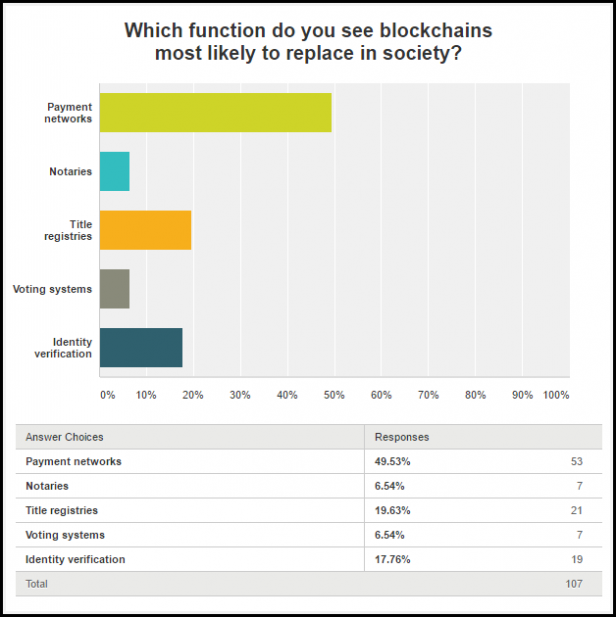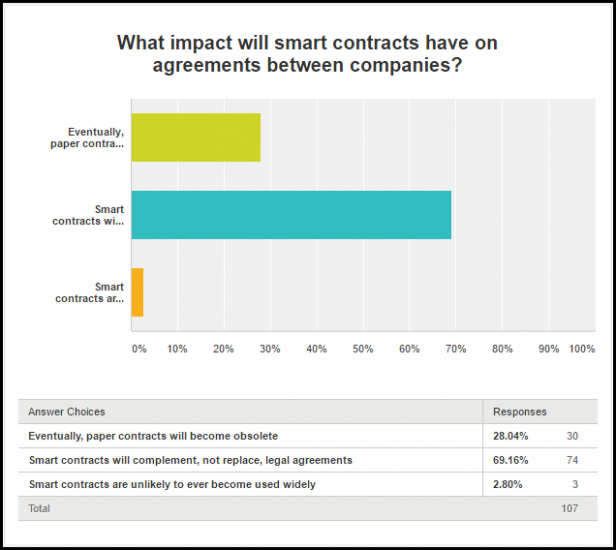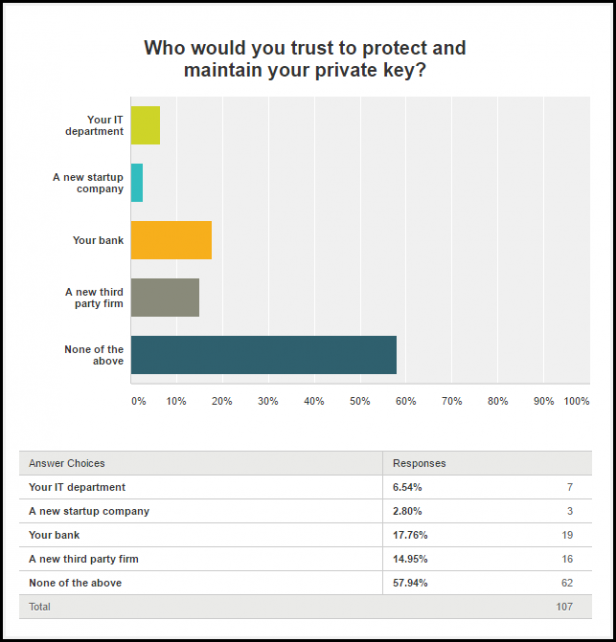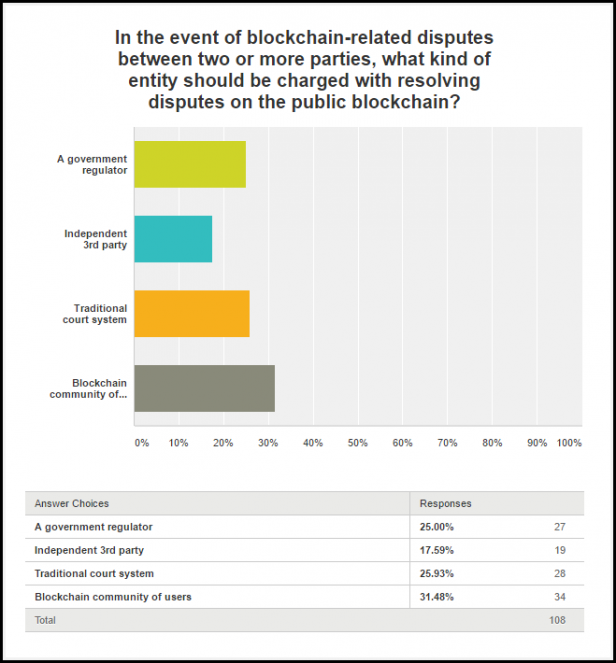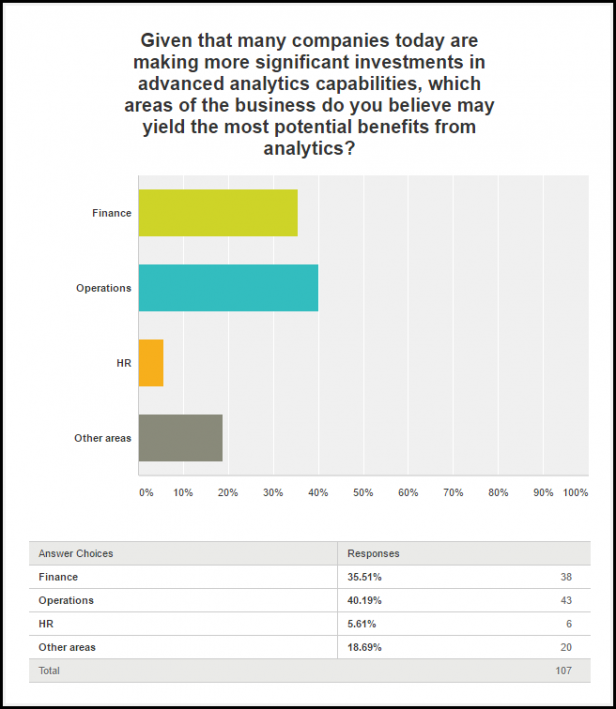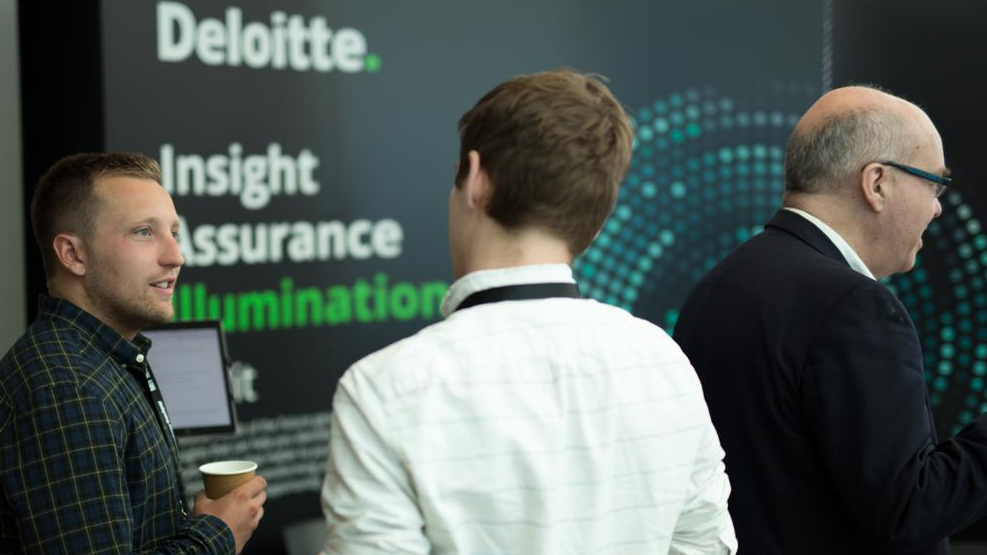

Business Impact
All Eyes on Blockchain: A New Way to Do Business
A Deloitte survey conducted at the Business of Blockchain conference on April 18, 2017, produced by MIT Technology Review and the MIT Media Lab Digital Currency Initiative, yielded some interesting responses.
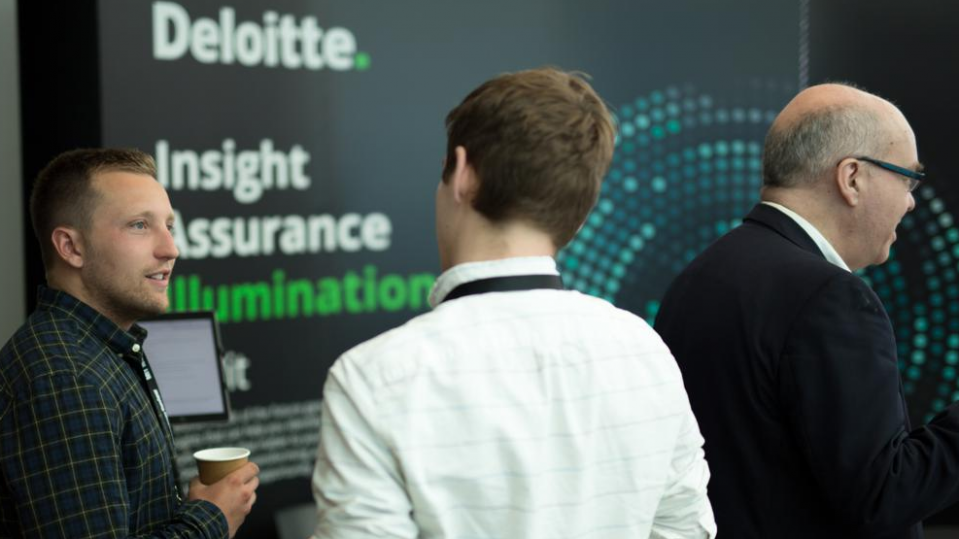
At a time when cybersecurity has become a central concern, digital technologies like blockchains, or distributed ledgers, are increasingly viewed as a potential solution for organizations looking to do business across borders and around the world in a fast, secure manner. At the Business of Blockchain conference, produced by MIT Technology Review in collaboration with the MIT Media Lab Digital Currency Initiative, leaders from a wide array of industries — from finance and healthcare to music and renewable energy — shared learnings on how distributed ledgers can help organizations operate more securely and efficiently. Deloitte conducted a brief survey of conference attendees for a snapshot on what is on the minds of many as they think about the growing impact of blockchains.
"The survey results indicate that participants see practical use cases for blockchain technology and a role for smart contracts to compliment traditional legal contracts. However, when asked about two important issues related to blockchain adoption – key management and resolving disputes – survey respondents did not have a consensus." - Will Bible, Audit & Assurance partner at Deloitte & Touche LLP.
Read on for the results of this survey.
This publication contains general information only and Deloitte is not, by means of this publication, rendering accounting, business, financial, investment, legal, tax, or other professional advice or services. This publication is not a substitute for such professional advice or services, nor should it be used as a basis for any decision or action that may affect your business. Before making any decision or taking any action that may affect your business, you should consult a qualified professional advisor. In addition, this publication contains the results of an informal survey conducted by Deloitte. The information obtained during the survey was taken “as is” and was not validated or confirmed by Deloitte. Deloitte shall not be responsible for any loss sustained by any person who relies on this publication.
About Deloitte
As used in this document, “Deloitte” means Deloitte & Touche LLP, a subsidiary of Deloitte LLP. Please see www.deloitte.com/us/about for a detailed description of our legal structure. Certain services may not be available to attest clients under the rules and regulations of public accounting.
Copyright © 2017 Deloitte Development LLC. All rights reserved
Advertisement

